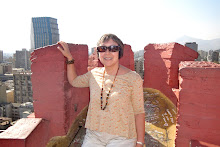Hiro
China is predicted to surpass the United States and become the most powerful country in the next 50 years. With the largest population, China has been increasing its economic growth at an unprecedented pace and getting more and more power in diplomatic relations. At the same time, however, it is also one of the least advanced countries in terms of human rights, especially freedom of expression. In China, no media are working efficiently because of the suppression of the government. There have been three incidents where the policy of the government toward the media can be typically seen: Tiananmen Square protest of 1989, Tibetan riots in Lhasa in 2008, and the Beijing Olympic Games in 2008.
Even today, it is almost impossible to know correctly in China what the Tiananmen Square protest was about because of the strong censorship of the Chinese government. Only controlled information is available there, and no one is allowed to relate the incident. Google, one of the biggest web search engine companies, also indirectly contributes to this situation by an agreement to remove information that the government regards as harmful. Therefore, more often than not, Chinese young people are totally unaware of the incident.[1]
Although the world’s attention focused on the riots in Tibet, Chinese people didn’t have access to information about them. That is because the government blocked access to some of the popular online sources such as YouTube and Yahoo. In the case of Google News, Chinese Internet users were subjected to ‘keyword filtering,’ in which pages containing words like ‘Tibet’ or ‘Dalai Lama’ were eliminated.[2] It was also useful for the government to prohibit foreign media from accessing the region.
China broke the agreement with International Olympic Committee in which the government promised to become more flexible regarding freedom of expression. In contrast to the promise, it proceeded to further restrict the media and journalists, who had only “sufficient” not unrestricted, access to the Internet.[3] Some of the reasons for the government to be so sensitive to the media were the riots that happened only a few months before the Games and the international protests in the torch relay. It was reported that TV broadcast the opening ceremony with a 40 second delay in China so that they could switch the images with other ones just in case.
Although its economy has been developing rapidly, China remains intolerant toward freedom of expression. The entire population is deprived of access to information about politically sensitive subjects such as the Tiananmen Square protest and the Tibetan riots. They restricted information even during the most honorable moments as the hosting of the Olympic Games, meaning that limited freedom in China is still a serious concern for people all over the world.
[2]http://www.themoneytimes.com/articles/20080317/no_youtube_and_yahoo_in_china_amid_tibet_riots-id-1019009.html
[3] http://www.cbc.ca/olympics/story/2008/07/31/beijing-censorship.html

No comments:
Post a Comment